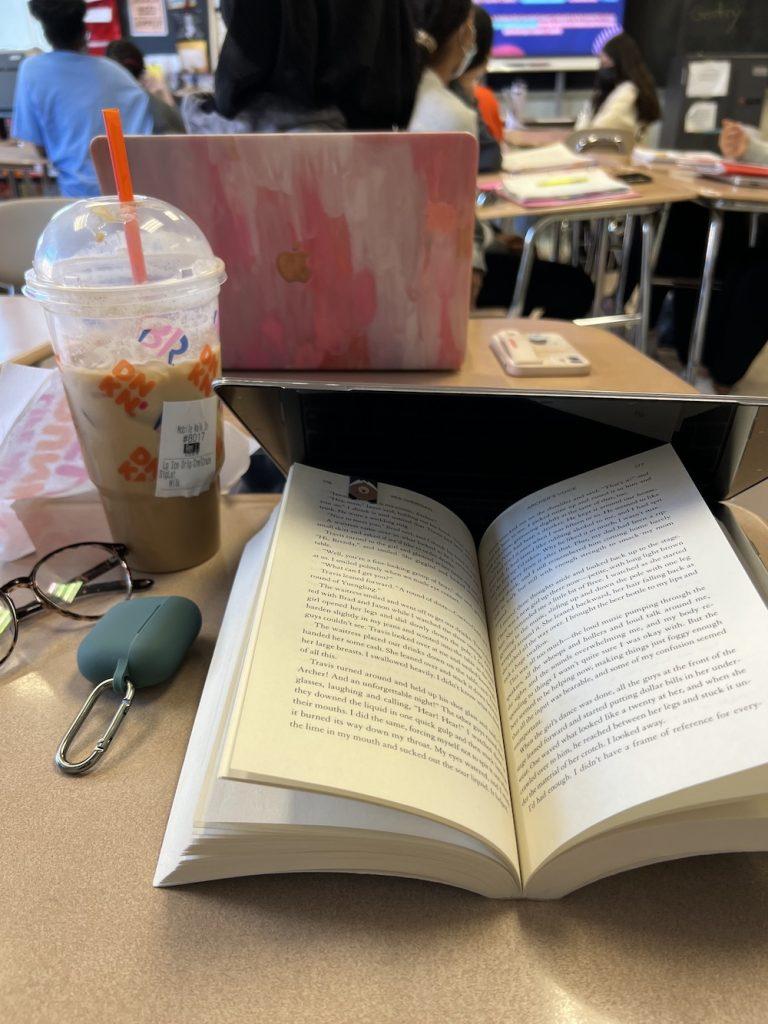
With anxieties at an all time high, Townsend Harris students are currently caught in the throes of this year’s AP season as they arduously prepare for and take their various exams. A recurring mindset, Harrisites experience the pressure to stack up on a number of challenging AP courses every year which fosters a competitive and stressful school environment that often places a strain on students’ mental health.
Students feel obligated to enroll in a lot of AP classes because they believe it is the path to success. When asked about her experience with AP coursework, junior Erica Jin said, “During our course selection in sophomore year, I felt obligated to choose AP courses that would potentially help me in college and raise my average in junior year. However, APs are rigorous classes that require precise attention and commitment.”
Not only are AP classes perceived as the only method to achieve their academic goals, but students have also grown accustomed to taking on the burden of such rigor. For instance, upon choosing her classes for the fall semester, sophomore Faith Park said, “I thought that taking a lot of APs was the norm.” This norm heavily factors into students’ course selections and leads them to take a lot of APs to conform to expectations and compete with the academic achievements of their peers.
By putting so much time and effort into these classes, students often lack time to pursue extracurricular activities or hobbies, which is a major part of a healthy and balanced life. “I think in a way our school environment has a skewed perspective on the way we view success,” senior Amelia Wizowaty said. “Having a good application and taking challenging classes that will look good on transcripts has always been a pressure that pushes a lot of people to take certain AP classes instead of ones we might be more curious about or enjoy.”
Moreover, the stress of such demanding classes can often be harmful to students’ mental health, especially during the AP testing season, where each course requires numerous hours of intense practice and studying. The build up of all of this work, plus the stress of exam dates often crammed into a span of several weeks can lead to undue nervousness and anxiety in a student’s school and home life. “[T]aking 3 APs this year was definitely difficult on top of all my extracurriculars and other demanding classes,” Erica said. This is problematic because AP courses demand a lot of time and effort from students, and being unable to enjoy the coursework can be detrimental to students’ mental health. Students also run the risk of becoming less motivated and more susceptible to burn out, which can in turn negatively affect academic performance.
Students often look to advance their coursework, skip general requirements that deviate from their major, or graduate early in their college years by loading up on AP exams. While there are academic and financial benefits that some students can reap from taking AP exams, many colleges often don’t take the credit. Especially for instances where this holds true, students shouldn’t feel as though a test score alone validates their experience in a class. THHS should aim to have a more accepting culture of when students who wish to engage in the rigor of an AP class but do not wish to bear the added burden of the AP exam can opt-out without guilt from their teachers or peers.
(Suggested reading: OPINION: Amidst a pandemic, students calling for AP opt-outs do not lack THHS “values”)
It is time to ditch the narrative that enrollment in APs is equivalent to academic success and the only way to get into a prestigious college. While it is great for students to challenge themselves academically, it should not be because they feel obligated to do so, but because they genuinely want to engage in a topic. Students should not sacrifice their own interests and mental health for a number on a transcript.
Photo by Ren Lama




























